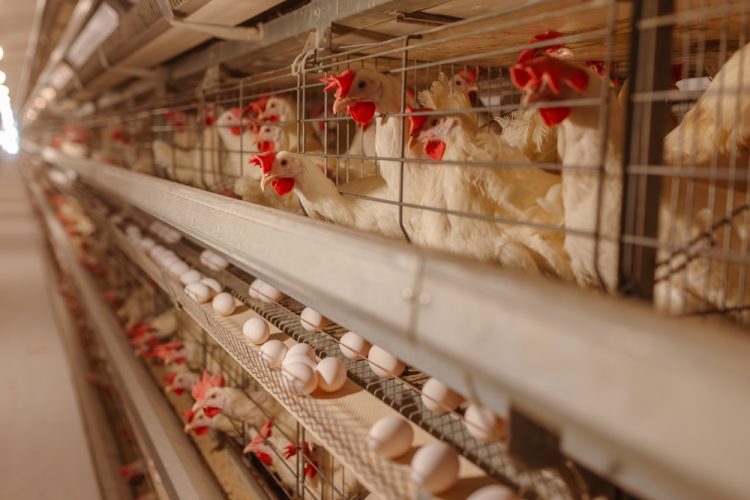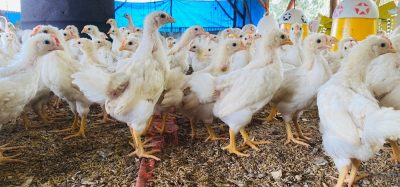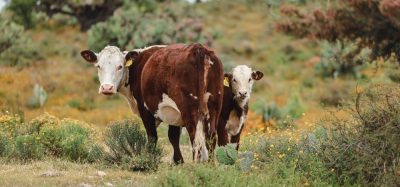UK animal product imports undermine welfare standards, report finds
Posted: 29 April 2025 | Ben Cornwell | No comments yet
New report finds 95 percent of the UK’s current or potential trade partners have lower animal welfare standards, prompting calls for urgent government action.


The UK is at risk of undermining its own animal welfare standards by importing products from countries with significantly lower protections for farmed animals, a new report warns.
Published today by Animal Policy International, Compassion in World Farming, and the RSPCA, the report reveals that 84 of the UK’s 88 current or potential tariff-free trade partners (95 percent) fall short of British animal welfare standards.
The report, Closing the Welfare Gap: Why the UK Must Apply Its Animal Protection Standards to Imports, was launched today in Westminster just as the Government prepares to announce its new trade strategy. It calls for urgent legislative change to ensure imported animal products meet the same standards required of British farmers.
Mandy Carter, Co-Executive Director at Animal Policy International said:
This really is a pivotal moment and we must act now to avoid this situation getting much worse. Allowing imports with lower welfare standards creates a race to the bottom that sells out British values and farmers.”
“It’s about integrity”
Among the findings, the report highlights that more than half of pork sold in the UK comes from countries that still permit sow stalls – banned domestically since the 1990s. It also notes the UK continues to allow imports of foie gras and fur, despite banning their production. While barren battery cages for egg-laying hens were banned in the UK in 2012, new trade deals could open the door to eggs and egg products from countries such as India and Mexico, where such cages are still in use.
Deborah Meaden, entrepreneur and Dragons’ Den investor, penned the report’s foreword. She wrote:
Closing this ‘welfare gap’ must be a priority. “It’s about integrity. We don’t just want suffering outsourced overseas – we want an end to farmed animal cruelty entirely.”
Public support for higher standards is clear. James West, Chief Public Affairs Manager at Compassion in World Farming, pointed to polling that shows “an overwhelming 84 percent of British people support restricting or banning low-welfare imports that do not meet UK standards.”
He added:
It is imperative that the Government ensures all animal products sold in the UK, whether produced domestically or imported, meet British animal welfare standards.”
Ongoing trade talks
The timing is critical, with ongoing UK trade talks with the US – rumoured to include chicken, pork, and beef – raising concerns among animal welfare groups and farmers alike. These products could be sourced from systems that are illegal in the UK, including hormone-treated cattle and the use of growth-promoting antibiotics.
The report warns that if left unaddressed, the UK’s trade policy could reverse decades of progress and harm the competitiveness of British farmers who adhere to higher welfare rules.
David Bowles, Head of Public Affairs at the RSPCA, said the consequences of weak import standards are already being felt and could get worse under new deals.
He commented:
We remain steadfast that the striking of any deal with the US must not make concessions that allow imported animal products produced to very low welfare standards onto our supermarket shelves. It would undermine our own higher domestic standards, hit the livelihoods of UK farmers hard, and fly in the face of what many consumers want.”
Calls for new legislation
Campaigners are calling for new legislation that ensures all imported animal products align with UK welfare laws, not just those regulating slaughter. Such a move, they argue, would create a level playing field and demonstrate that the UK’s ethical stance on animal welfare extends beyond its borders.
Carter added:
The UK now faces critical choices for how best to pursue a successful trade agenda. Just as we regulate imports to safeguard our slaughter laws, we should also do so for production methods, protecting the values of British people and upholding our reputation. It’s time to close the welfare gap.”
As post-Brexit trade deals reshape the UK’s global relationships, pressure is mounting on the Government to show that its commitment to animal welfare is not just rhetorical, but enforceable.
Related topics
Environment, Regulation & Legislation, Trade & Economy, World Food
Related organisations
Animal Policy International, Compassion in World Farming, RSPCA









